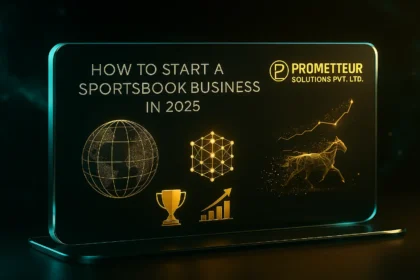Blogs
How to Start a Successful Online Casino Business in 2025?
Tech is advancing - beyond boundaries and in every aspect of our living and businesses. Certainly, the gaming and entertainment…
AI-ML in Education: Revolutionizing Learning Experience
There is no better time than now to utilise the innovation of modern technologies such as AI-ML in education. The…
IoT Manufacturing Processes with IoT Solutions
If you are looking for the best post on IoT manufacturing, this is the best place to be right now.…
OFFSHORE MOBILE APP DEVELOPMENT COMPANY OR PARTNER
Do you know how to offshore mobile app development? Would you like…
Top 5 Benefits of Using Flutter App Development for Your Business
Flutter is one of the most sought-after mobile app development frameworks with…
How to Start a Sportsbook Business in 2025: A Complete Beginner’s Guide
Understanding the Sportsbook Business Landscape in 2025 The global sports betting market…
iGaming trends In 2025
The Evolving Landscape of iGaming: Trends and Strategic Opportunities for 2025 and…
Complete Guide to Turnkey Sportsbook Solutions
Are you looking to launch a betting app, enhance an existing one,…
Mastering Bankroll Management for Successful Sports Betting
In the electrifying world of sports betting, the real thrill isn't just…
Custom Online Casino Development
Join us, as we embark on a comprehensive journey into the world…
Advanced Features of Modern Betting Apps
Hi! Do you want to learn or get some useful insights about…
Essential Features of Online Casino Software
Online casino plays important roles in driving the business of online casino…
Starting an Online Casino –Everything You Need to Know
Starting an online casino business is not as easy as ABC. It…
How to Create a Sports Betting Website from Start to Finish
Are you thinking of how to create a sports betting website for…
White Label Casino Solutions | Turnkey iGaming Platforms
White-label casino solutions offer amazing opportunities and benefits to entrepreneurs who want…
Top Online Casino Software Providers
Statistics on online gambling activities show that there is a surge in…
Top Online Casino Trends In 2025
As 2024 comes to an end, 2025 will open up new opportunities…



